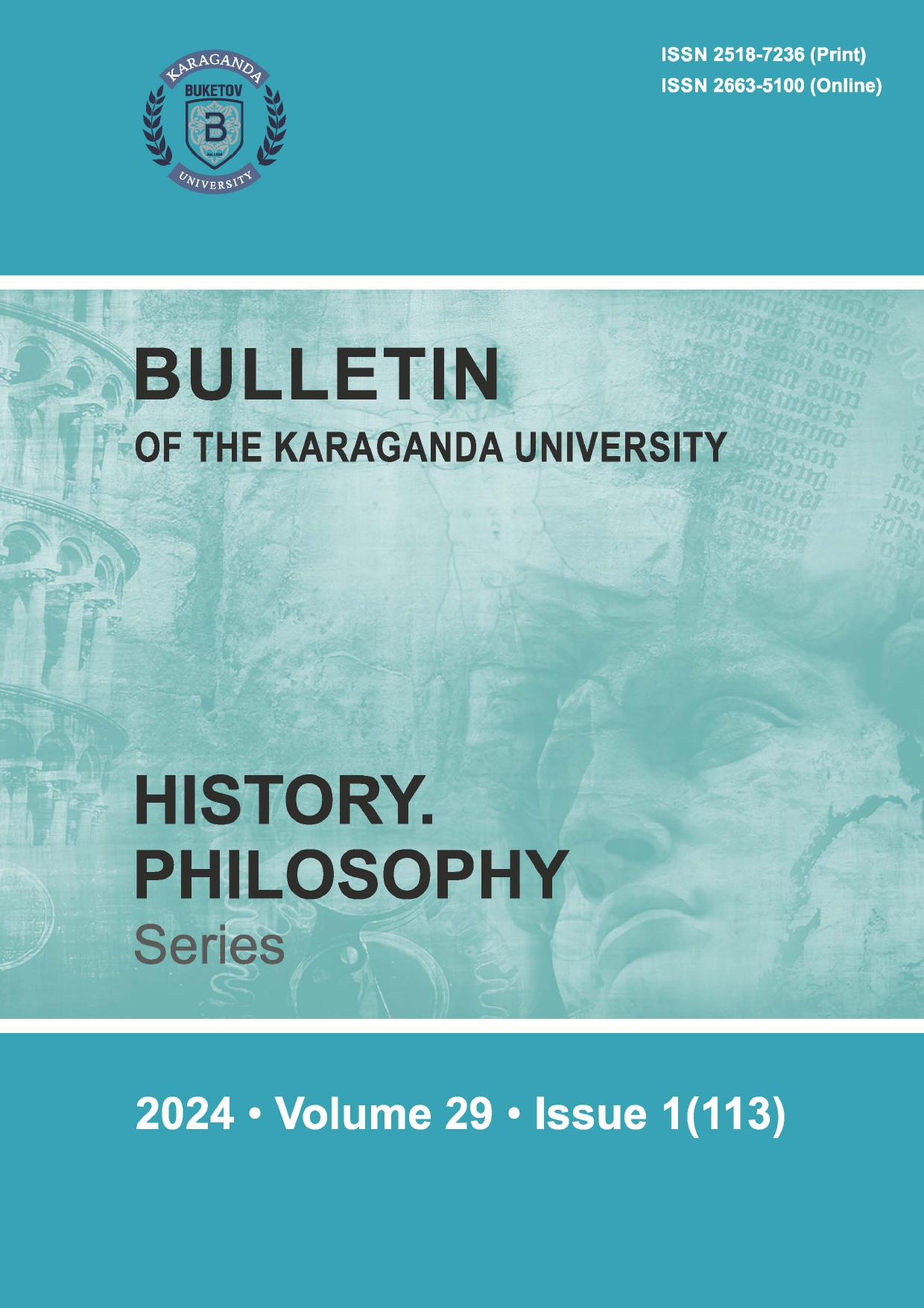The idea of self-realization in the philosophy of work
DOI:
https://doi.org/10.31489/2024hph1/237-243Keywords:
philosophy of work, self-realization, psychological factors, social factors, work activity, harmonization of interests, professional development, personal interests, organizational environment, professional environmentAbstract
This study presents a deep analysis of the idea of self-realization in the philosophy of work. The main focus is focused on the complex consideration of the relationship between individual aspirations for self-realization of employees and the limiting factors presented in the conditions of the modern working environment. Using a multidimensional approach, including theoretical and empirical methods, the authors study how structural, psychological and social aspects of work affect the process of individual self-realization. The empirical part of the study is based on data obtained from qualitative and quantitative surveys among various groups of employees. These data helped to highlight the internal experiences and attitudes of employees to their professional role, as well as to identify key factors that contribute to or hinder their self-realization. Case studies contribute to understanding the specific scenarios in which these dynamics manifest themselves by providing real-world examples of the problems faced by employees and strategies for solving them. The methods and recommendations developed on the basis of this analysis are aimed at optimizing the organizational environment for better adaptation to the individual needs of employees for self-realization. In general, the study identifies possible ways to harmonize individual and corporate interests. This work offers valuable insights for organizations seeking to create an environment that not only supports corporate goals, but also promotes the full self-realization of each team member in the context of modern work philosophy.




